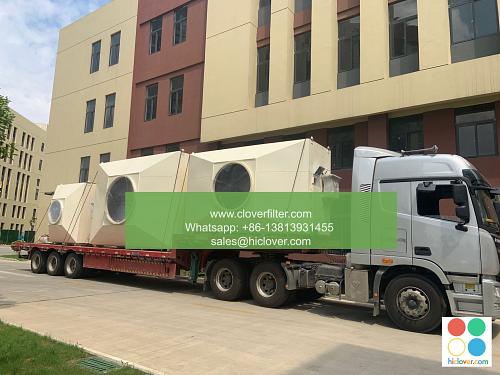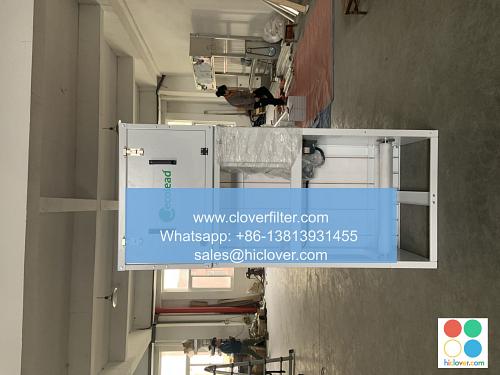The Pros and Cons of Using a Smart Air Filter

The Pros and Cons of Using a Smart Air Filter
In today’s world, indoor air quality is a growing concern. With the increasing number of pollutants and allergens present in the air, it’s essential to have a reliable system to remove them. One option to consider is a smart air filter, which uses advanced technology to monitor and improve indoor air quality. In this article, we’ll explore the pros and cons of using a smart air filter and highlight its various application areas.
What is a Smart Air Filter?
A smart air filter is an advanced air purification system that uses sensors and algorithms to detect and remove pollutants and allergens from the air. These filters are designed to detect the air quality in real-time and adjust their performance accordingly. They can monitor for various pollutants, including particulate matter (PM), nitrogen dioxide (NO2), carbon monoxide (CO), and volatile organic compounds (VOCs).
Pros of Using a Smart Air Filter
Improved Air Quality
Smart air filters can detect and remove a wide range of pollutants and allergens, resulting in significantly improved air quality. They can detect changes in air quality in real-time and adjust their performance to ensure that the air is always safe to breathe.
Energy Efficiency
Smart air filters are designed to be energy-efficient, using advanced technology to minimize energy consumption. They can adjust their fan speed and air flow to optimize energy usage, saving you money on your energy bills.
Increased Convenience
Smart air filters can be controlled and monitored remotely, allowing you to adjust the settings and check the air quality from anywhere. This is especially useful for people who are away from home for extended periods or have busy schedules.
Extended Filter Life
Smart air filters can increase the lifespan of the filter by detecting when it needs to be replaced and alerting you to do so. This can save you money on filter replacements and reduce waste.
Cost-Effective
Smart air filters can be more cost-effective than traditional air filters, especially in the long run. They can detect and remove pollutants more efficiently, reducing the need for frequent filter replacements.
Cons of Using a Smart Air Filter
High Upfront Cost
Smart air filters are typically more expensive than traditional air filters, making them less accessible to some consumers.
Complexity
Smart air filters require more installation and maintenance than traditional air filters, as they need to be connected to a smart device and configured.
Dependence on Technology
Smart air filters rely on technology to function, which can be disrupted by power outages or connectivity issues.
Limited Coverage
Smart air filters may not be suitable for large homes or offices, as they may not be able to cover the entire area with their air purification capabilities.
Application Areas for Smart Air Filters
Residential Homes
Smart air filters are perfect for residential homes, as they can detect and remove pollutants and allergens that can aggravate respiratory issues, such as asthma.
Commercial Spaces
Smart air filters are also suitable for commercial spaces, such as offices, schools, and hospitals, where poor indoor air quality can have serious consequences on employee health and productivity.
Industrial Sites
Industrial sites, such as factories and warehouses, can benefit from smart air filters, which can detect and remove pollutants and allergens that can put workers at risk.
Automotive
Smart air filters can also be used in vehicles, detecting and removing pollutants and allergens in the air and providing improved air quality for passengers.
In conclusion, smart air filters offer numerous benefits, including improved air quality, energy efficiency, increased convenience, extended filter life, and cost-effectiveness. However, they also have some drawbacks, such as high upfront costs, complexity, dependence on technology, and limited coverage. By understanding the pros and cons of smart air filters, you can make an informed decision about whether they are right for you.
Key Takeaways
- Smart air filters can detect and remove pollutants and allergens, improving indoor air quality.
- They offer energy efficiency, increased convenience, extended filter life, and cost-effectiveness.
- Smart air filters are suitable for residential homes, commercial spaces, industrial sites, and automotive applications.
- They have some drawbacks, including high upfront costs, complexity, dependence on technology, and limited coverage.
Industry Keywords
- Smart air filter
- Air purification
- Indoor air quality
- Energy efficiency
- Convenience
- Filter life
- Cost-effectiveness
- Residential homes
- Commercial spaces
- Industrial sites
- Automotive applications
Prompt


